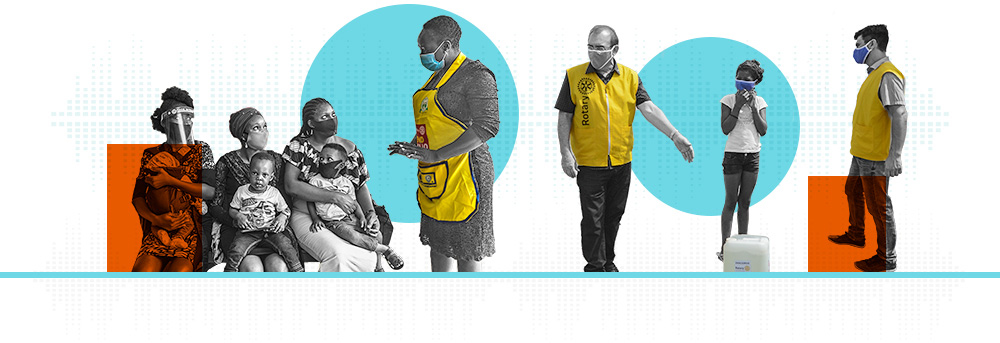By Benjamin Rasmus, a member of the Rotary Club of Seattle-International District, Washington, USA, and program director for Rotary First Harvest
Hunger exists across America.
Roughly 50 million Americans face hunger everyday.Simultaneously, there is incredible food waste — 130 billion pounds of edible food is wasted every year. Often highly nutritious produce is tossed because of cosmetic imperfections or market variations. Many Americans mistakenly believe food insecurity is a problem confined to developing countries. However, hunger is a serious issue facing families from Seattle, Washington, to Washington D.C., and everywhere in-between.
Heather Hoffman and I are biking across America this summer to raise awareness about these contradictory issues (so far we have biked about 500 of 3,750 miles). Along our route, Heather and I will visit Rotary clubs, farmers, food banks and gleaning projects (in which edible, fresh produce missed during harvest or rejected for aesthetic reasons is salvaged — or “gleaned” — to feed the hungry).
I work as the program director at Rotary First Harvest, a non-profit volunteer group supported by Seattle area Rotary clubs. This collaborative effort partners with growers, truckers and local food banks to provide families in need with fresh, unharvested produce that would otherwise go to waste. Since its founding in 1983, Rotary First Harvest has distributed more than 183 million pounds of produce to people in need. Of this produce, an increasingly amount is gleaned and may otherwise have gone to waste if not for the hard work of thousands of dedicated volunteers.
In the Pacific Northwest and beyond, we have seen an increasing amount of interest and support from a broad spectrum of community members and volunteers who want to fight hunger and reduce food waste. During this endeavor, Bike Against Hunger, we will visit organizations and meet individuals who are making a difference in this often overlooked public health issue.
For example, great enthusiasm exists on college campuses, like Campus Kitchen and Food Recovery Network, to take leftover food from college campuses and divert it to hunger relief projects or emergency feeding programs. Rotary First Harvest’s Harvest Against Hunger project hires recent college graduates for placements as AmeriCorps VISTA members in communities across Washington State to start or sustain local produce-recovery projects. The faith-based community works to engage congregations in gleaning projects like Fields of Grace and the Society of Saint Andrews. Featured stops along the route will always have the common theme of hunger relief, fresh and local produce, Rotary International and AmeriCorps.
We plan to complete our 3,750-mile route in about 10 weeks and are averaging about 70-miles per cycling day (with built-in rest days). We departed Seattle on 18 June and stopped for the Pacific Northwest Gleaners Summit in Portland on 21 June. Other major stops along the route include Denver, Colorado, 23-24 July; Omaha, Nebraska, 1 August; Iowa City, Iowa, 6 August; Chicago, 9-13 August; Cleveland, Ohio, 16 August; and Pittsburgh, Pennsylvania, 19 August; arriving in Washington D.C. 26 or 27 August.
- Learn more about Bike Against Hunger
- Check their progress on their blog
- Follow the ride on Facebook or Twitter @RFHarvest
- Watch the video Doing Good in Seattle

Keep biking. I envy anyone that takes a challenge like that and makes it work. Wonderful. Hope you have a safe a rewarding journey.
LikeLike
Pingback: Today’s Links | Rotary International District 3040
Pingback: Biking against hunger | Warsaw Rotary , Club 3393, District 6540